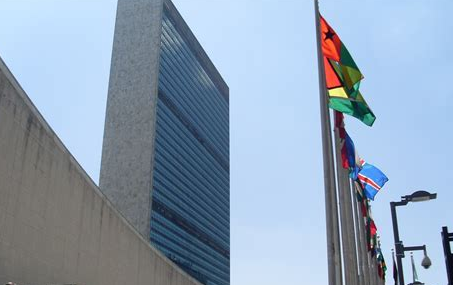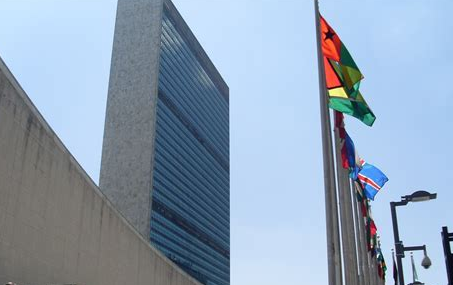
UNITED NATIONS, Jan. 31 (Xinhua) -- Representatives from around 10 missions to the United Nations (UN) and officials from different UN agencies discussed with Chinese experts here Wednesday to find out ways to facilitate South-South cooperation.
The United Nations Office for South-South Cooperation (UNOSSC) and the United Nations Development Programme (UNDP) co-organized a Global Thinkers Dialogue with the China Center for International Knowledge on Development (CIKD).
"South-South cooperation enables us to build our economies based on the experience of others," said Dr. Sen Gong, executive vice president of the CIKD. "This think tank network provides new options for countries who want to scale up development while preserving their independence."
Modest Jonathan Mero, permanent representative of Tanzania to the United Nations, said "dominant development frameworks often cannot adequately explain the success of developing countries including China, who share historical perspectives."
The dialogue was organized under the umbrella of the South-South Global Thinkers: the Global Coalition of Think Tank Networks for South-South Cooperation initiative, which was launched by the UNOSSC and the UNDP in 2017 as a joint effort to draw on the high-quality expertise of academic institutes and to develop a platform for South-South cooperation research and knowledge sharing.
The research and consensus generated under this initiative will offer reference and instruction to the upcoming Second United Nations High-level Conference on South-South Cooperation (BAPA+40).
Jorge Chediek, the UN Secretary-General's envoy on South-South cooperation and director of the UNOSSC, reiterated the importance of generating and sharing research on South-South and triangular cooperation in the lead-up to the 2019 Second High-level Conference on South-South Cooperation (BAPA+40) to be held in Buenos Aires.
"There is presently no systematic, widely available information on the trends and patterns of South-South cooperation," Chediek said.
"It is for this reason that UNOSSC and UNDP jointly launched the South-South Global Thinkers initiative," Chediek said, reiterating his desire for the UNOSSC to become a robust knowledge hub.
The informal round-table discussion featured interventions from representatives of UN member states and entities, as well as civil society. Participants agreed on the need for better platforms and systems to generate and disseminate knowledge on South-South and triangular cooperation.
In her closing remarks, Simona Marinescu, director of the Development Impact Group of the UNDP, stressed the importance of high-quality research, and in this regard commended China for its commitment to South-South knowledge exchange.




 A single purchase
A single purchase









